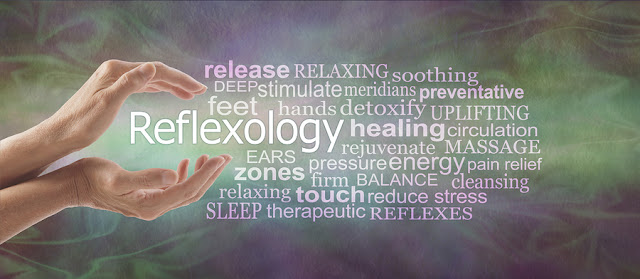The 4 Physical Effects of Sadness and Depression You Should Know About
One of the best and most enlightening books I’ve ever read is “The Biology of Belief” by Bruce H. Lipton Ph.D. In the book he explains how our mental state and feelings can actually have a physical affect on our bodies. It radically changed how I felt about my own thinking, and how my mental state could actually have an effect on my physical wellbeing. We’ve all heard about someone dying of a “broken heart” and we’ve all felt that very tangible knot in our stomachs when facing something scary. We’ve read about the negative way in which stress can affect our bodies and we’ve heard the miraculous stories of super-human feats performed in life-or-death situations. So it should come as no surprise that an illness such as depression can actually have a negative effect on our physical health.
It’s worth mentioning here that holistic therapies such as Reflexology treat problems with the whole person - the mind, body and spirit are parts of a whole - they all have to be working properly if the individual is to be well. That’s why it’s so effective in helping people to manage their emotional problems and improve their physical wellbeing. In other words, helping them to heal.
So here are the four most powerful and negative ways in which depression or persistent sadness can affect our physical health:
1. It Suppresses The Immune System
There is growing evidence that suggests that being sad or depressed can suppress the immune system. If this happens, the body becomes much more vulnerable to chronic autoimmune diseases like arthritis and multiple sclerosis, as well as the more everyday colds and flu.
In addition to this, with an increase of the negative emotions associated with depression, there is an increase of stress hormones, such as adrenaline and cortisol. In normal circumstances, these hormones help us deal with sudden trauma or changes and then they get switched off. However, with depression, these hormones are not switched off - this suppresses the immune system even further.
There are also other problems that come with constantly producing stress hormones - but that’s another blog…
2. Eating Disorders
An integral part of persistent sadness and depression is negative self-image. A vulnerable person who is depressed may be more susceptible to eating disorders such as anorexia nervosa. This is because negative self-image and a feeling of being unable to control the depression (or indeed, the circumstances that might have caused the depression) lead to the sufferers trying to take back control, sometimes in the only way they can - by controlling what they eat.
3. Risk of Self-Harm
These negative emotions and negative self-image can also lead to anxiety. If these anxious feelings persist and aren't addressed, sufferers may turn to harming themselves through substance abuse, suicidal behaviour or other means.
4. It Causes Exhaustion
Depression causes mental and physical exhaustion. Sleep patterns are disrupted because your mind can’t still itself and therefore you can’t fall asleep easily. When you do get to sleep, it is fitful and brief. If you’re exhausted, every little thing seems like a huge hurdle and life begins to get the better of you - the negative feelings are increased, caused the depression to deepen and the cycle is repeated.
If you want to get yourself back on track and think that I could help you find your balance again, please do get in touch through my website: www.barefoot-reflexology.co.uk




Comments
Post a Comment